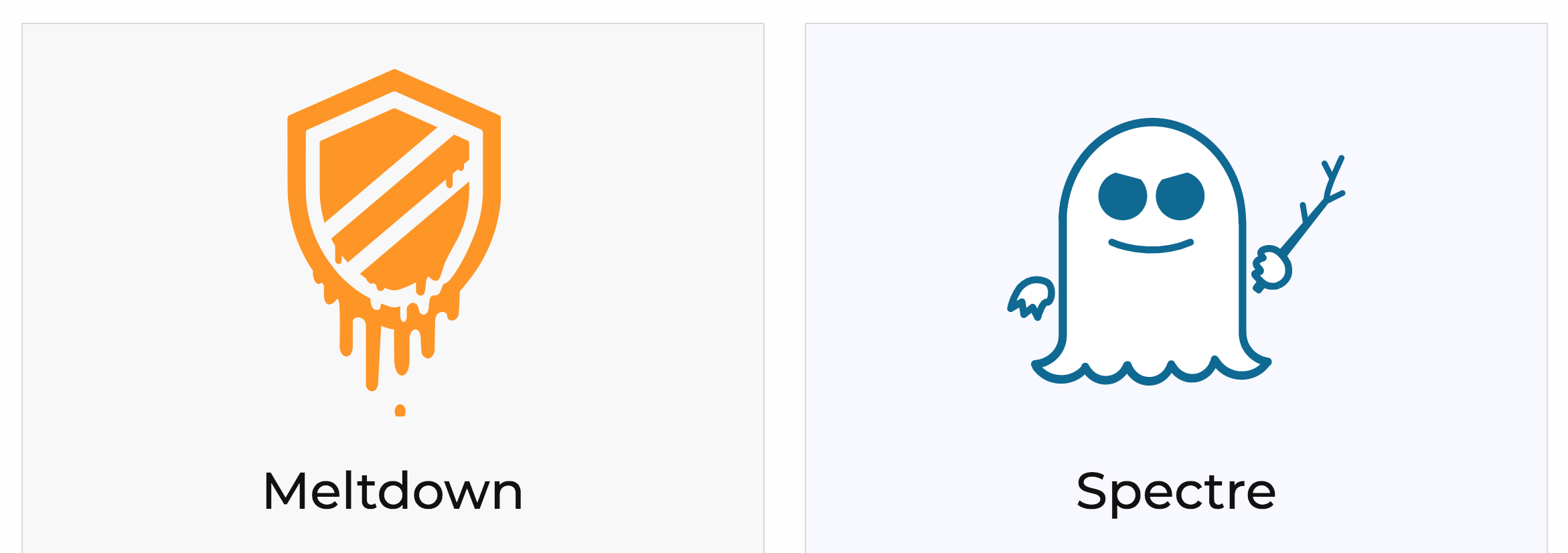Patching Meltdown and Spectre

Seems like every 1-2 years we get a major security scare in the form of a global exploit that effects server infrastructure in some fashion and requires a response. We've had Heartbleed, Poodle, Shellshock (who comes up with these names anyway?). 2018 didn't wait long to bring us that gift in the form of Meltdown and Spectre. https://meltdownattack.com/ has a lot of great information about these two exploits but the short story is that rather than taking advantage of any particular software configuration, these exploits expose vulnerabilities in pretty much all modern CPUs. That means not only does this require patching for server admins like me at Reclaim Hosting and across the web, but every operating system from all computers including mobile devices and personal computers are vulnerable. The vulnerability takes advantage of exploits at the hardware as well as software layer to leak data into memory that can then be read by the attacker. It's not a question of whether or not you are affected, you are affected.
Antivirus can't block it either, only patching the underlying systems will resolve it and thankfully companies have been hard at work at getting these patches developed since long before the news became public. Intel became aware of the exploit last fall and many major companies have been under an NDA as they developed patches to secure their systems. Due to the complexity of this exploit however, we are still awaiting patches for some systems and now it is public (which will hopefully light a fire under certain groups to get these patches out).
Thankfully when we at Reclaim became aware of the issue last week CentOS, the distribution of Linux that powers over 90% of our server infrastructure and the only supported distribution for cPanel, was already releasing patches. We had to do some testing as well as await patches by Cloudlinux which is a third party that we use for our kernel software, but by Monday we felt confident the patches were safe and we set to work to patch our entire fleet. Normally with maintenance that involves downtime we like to give customers a heads up and with this kernel update requiring a reboot sites would indeed be offline for a few minutes, however we made the judgement call to rip the bandaid off and favor getting these patches in place as soon as possible rather than risk data being exposed as a result of the vulnerability. By 6PM Monday our entire infrastructure that runs cPanel and all CentOS servers were patched for these exploits with minimal downtime across the majority of our servers.
We have a small number of Ubuntu servers that we are still awaiting a production patch on and hope to receive that sometime this week. If you want to make sure you are secure, the best thing you can do is run all updates for your operating system and browser to make sure you're running the absolute latest version. Due to the nature of the exploit there is no way to trace whether the vulnerability has been taken advantage of (it does not log any of its actions) so it's particular important to be proactive. I'm proud of the capacity of Reclaim Hosting as a small operation to remain aware of these events and to stay on top of them in a timely manner.
Now can we take a nice long vacation from these major exploits? My spidey sense tells me that's likely not to be the case as we come to rely more and more on computers and specifically internet-connected devices in our lives. It's the new normal and the best security we can hope to have is proactive patching and awareness.
Comments powered by Talkyard.